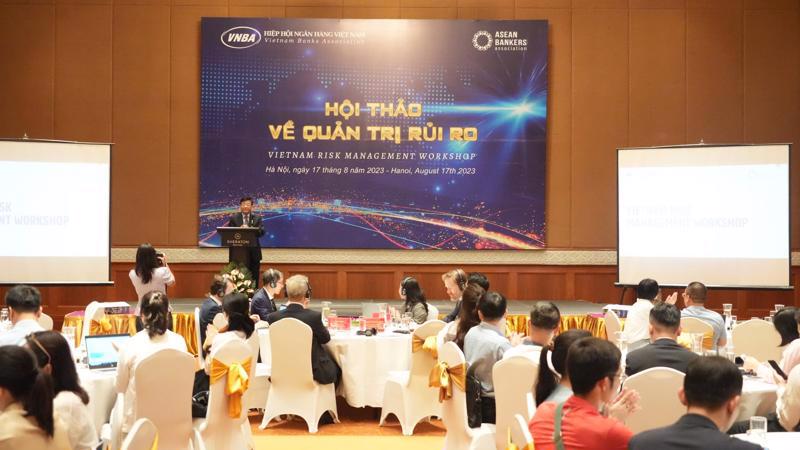Non-financial risks facing the banking sector around the world were a key topic of discussion at the Vietnam Risk Management Workshop on August 17.
Risk management directors at banks worldwide regard the management of non-financial risks, such as climate risk, as a top priority.
Climate risk is a matter of great concern nowadays. This issue was not a priority in the past but is now a concern of many banks around the world, the workshop heard.
For instance, forest fires in Indonesia cost $5.2 billion in economic losses in 2019 alone, while devastating floods that hit Malaysia in January 2022 caused about $1.4 billion in losses.
Singapore has pledged to be the first Southeast Asian country to phase out gasoline and diesel vehicles by 2040, banning the sale of internal combustion engine (ICE) cars by 2030. Electric vehicles sales made up 8.4 per cent of total cars sold in Singapore in the first half of 2022, more than double the rate in 2021.
Vietnam, meanwhile, is facing the early retirement of at least 28 GW of coal-fired power plants before 2040 and formulating a regulatory scheme for compensating existing shareholders as well as investors.
According to analysts, it is necessary to quantify climate change risks in bank loan portfolios, as this will amplify into existing credit / financial and reputational risks facing banks.
Risk management is an extremely important task of any bank to manage and mitigate, said Dr. Nguyen Quoc Hung, Vice Chairman and General Secretary of the Vietnam Banks Association.
The first important matter in risk management is complying with regulations of management agencies. However, according to analysts, compliance is not sufficient.
Banks need to identify and protect themselves from potential risks and respond and adapt to crises. They also need to bounce back and learn from actual risks, mitigating their impact on the banking system.









 Google translate
Google translate